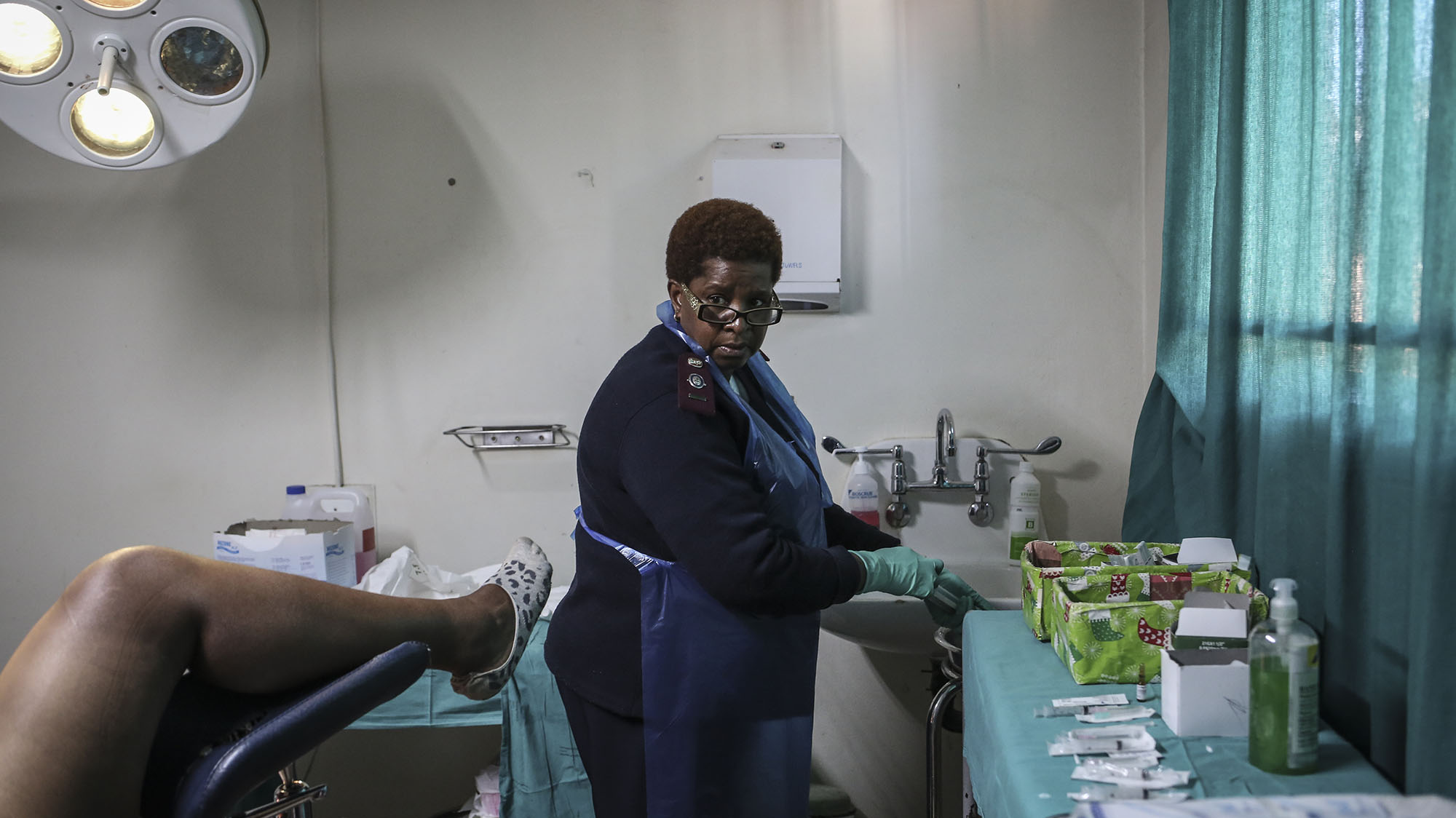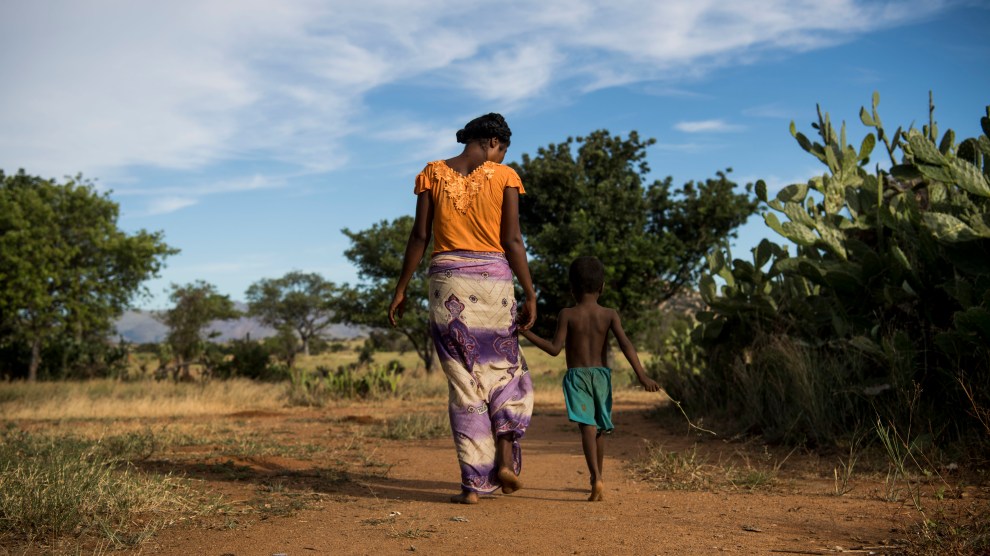When we met M, still dressed in her fast-food uniform tightly fitted around her pregnant belly, she looked lost. She shyly approached us in Gandhi Square, a main thoroughfare in Johannesburg, South Africa, and asked if we knew the location of a “women’s clinic.” My colleague Mosibudi, also a journalist, kindly asked if she was looking for an abortion. M sheepishly looked down, glanced around to make sure no one could hear us, and nodded yes.
Mosibudi and I understood her anxiety. We had just attempted to interview an illegal abortionist in a “clinic,” located in an aged office building near Gandhi Square. But tucked away in a small unmarked office that consisted of just a few office chairs and a desk, the abortionist refused to be interviewed. M, we knew, was just one of the many young South African women who needed help and did not know where to go.
Abortion has been legal in the country since 1996, but there are still a lot of barriers to women getting the procedure legally—including policy set thousands of miles away in Washington, DC.
Two years ago last month, the Trump administration revived and expanded the Mexico City Policy, also known commonly as the global gag rule. The policy blocks US funds to any foreign nongovernmental organization that provides abortion-related services. In its past incarnations—all under Republican presidents, starting with Ronald Reagan—the rule only affected funding for sexual and reproductive health programs. But President Donald Trump has taken the unprecedented step of expanding the policy to cover almost all health care funding, which has created an uproar of confusion in countries like South Africa.
In South Africa at least, conditions are made even worse by barriers—cultural and political—on the ground. According to medical experts, fewer and fewer government clinics offer abortion services. According to Dr. Tlaleng Mofokeng, deputy chair of the Sexual and Reproductive Justice Coalition of South Africa, only 5 percent of government clinics now offer the procedure. Several people we spoke with said the wait time to get an abortion at a government facility is usually at minimum a month. This doesn’t allow many women to get an abortion in the timeframe legally allowed unless they know very early on that they are pregnant and decide to terminate. The other options are private clinics—which are often too expensive for many women—or illegal clinics that, like we saw firsthand, aren’t providing the care women need.
Making matters worse is the message coming from the government. South African Health Minister Aaron Motsoaledi has falsely stated numerous times that women use abortion as a form of birth control. In an interview on national TV in 2013, he said, “We have a serious problem with family planning not only in South Africa…many young girls believe abortion is some form of family planning and we believe that is very bad.”
Several NGOs have expressed frustration that the South African government isn’t supporting them or helping them understand the new changes to the Mexico City Policy, which now impact a wider array of women’s health providers than ever before. One organization told us they applied to the United States for an exemption based on the fact that a woman’s choice is enshrined in the South African Constitution, but they have no idea if they will get it. And if they don’t, they will either have to sign the policy or go without crucial US funding.
This new reality has forced NGOs like Soul City Institute for Social Justice into a corner. Soul City runs a number of different programs for women and girls, including group meetups where girls can talk about problems and issues in their lives, including abortions, in a safe space. But earlier this year, the organization was trying to decide whether to comply with the Mexico City Policy, which they would need to do to get US funding for another project focused on gender-based violence. In the end, it didn’t get the grant; the group’s director said it was a relief they didn’t have to make that decision to prioritize abortion programming versus other critical issues.
Similarly, organizations like Health Enabled have struggled under the new policy. Health Enabled is the developer of a mobile app called MomConnect that sends newly pregnant women information they need through alerts on their phone. The organization, though, was in the process of developing a new pilot program focused on HIV-positive mothers. But because it did not sign the US policy, Health Enabled lost its US funding—even though none of the information in the app asked any questions about or mentioned abortion.
Women like M are the ones who ultimately suffer in this environment. We met her again outside her work a few weeks after our initial meeting and asked her what happened. She said she had gone to an illegal abortionist and he was willing to give her pills, but she said she was scared because he didn’t even care how many weeks pregnant she was. She tried to go to another, legal, clinic, but they told her she was too far along in her pregnancy and wouldn’t be able to have an abortion anymore. So she’s going to have the baby, although she’s barely able to support herself now on her current salary. Making matters worse, she’s afraid her boss is going to fire her. He said she takes too many bathroom breaks and that if she doesn’t make her sales quota, she will be let go.
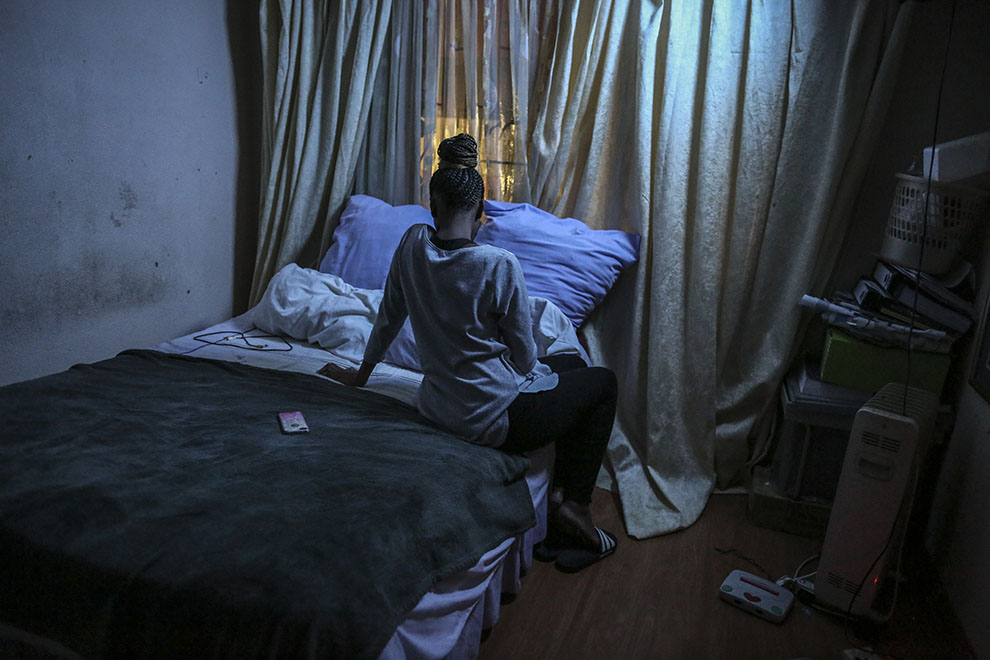
K, 28, is seen inside her house in Johannesburg on May 5, 2018. When K went to a government hospital to get an abortion, the wait was too long. The nurse there also encouraged her to keep the child, saying that her son needed a sibling. She later got a legal abortion at a private clinic.
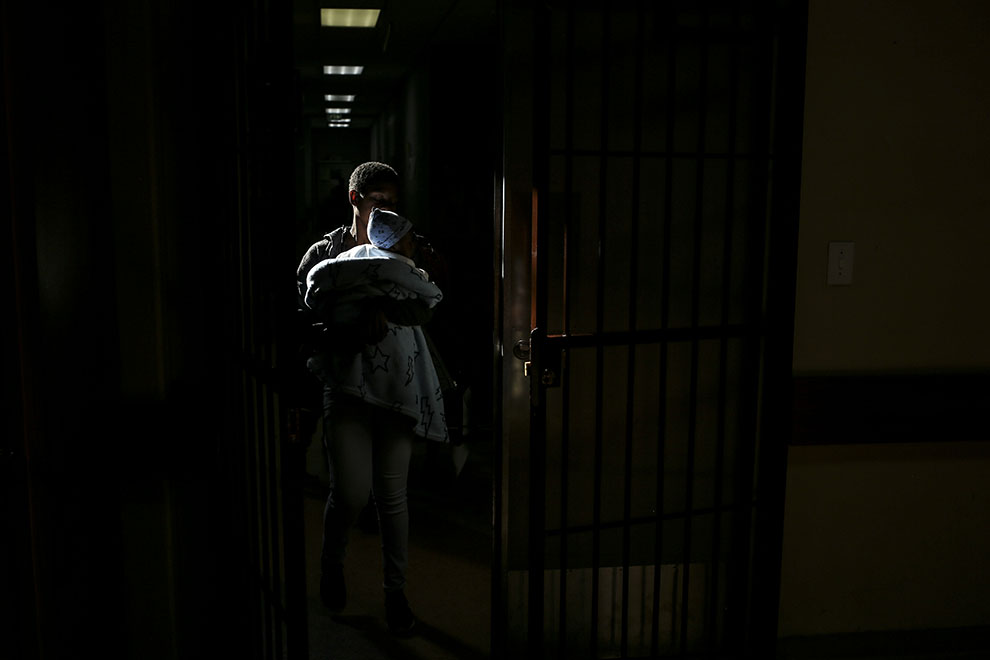
Women at the Hillbrow clinic in Johannesburg wait with their children on May 4, 2018. The government clinic had not offered abortions in eight months, since their last nurse resigned. The department head says they are training two new nurses to perform the procedure. There is no extra incentive to perform abortions, unlike other medical specialties, and a lot of times there can be stigma against the nurses who perform these procedures.
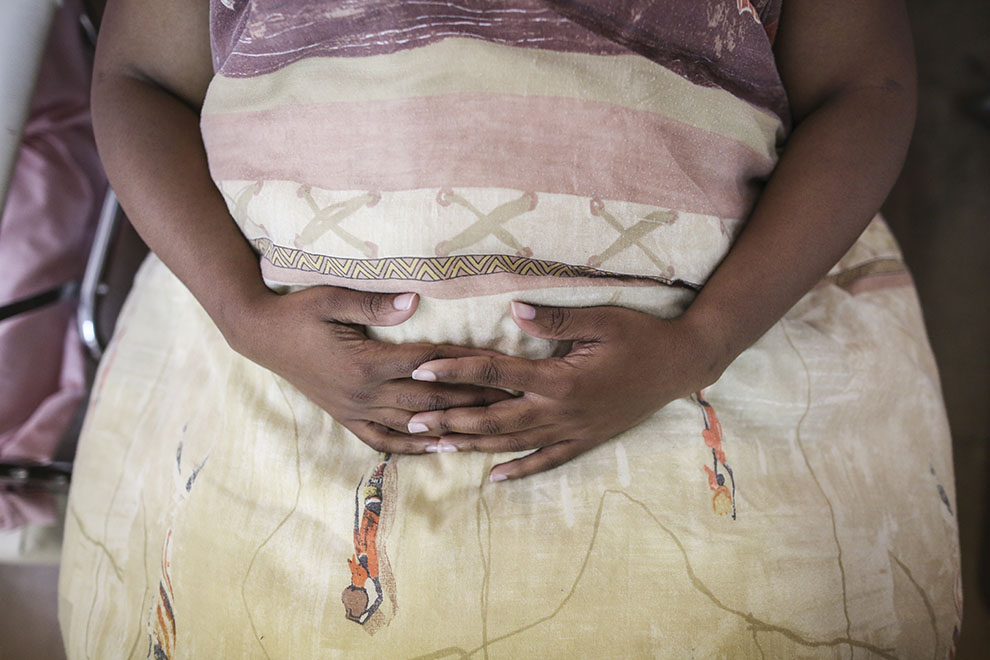
N, a 27-year-old who just had an abortion at an accredited private clinic, recovers on May 5, 2018.
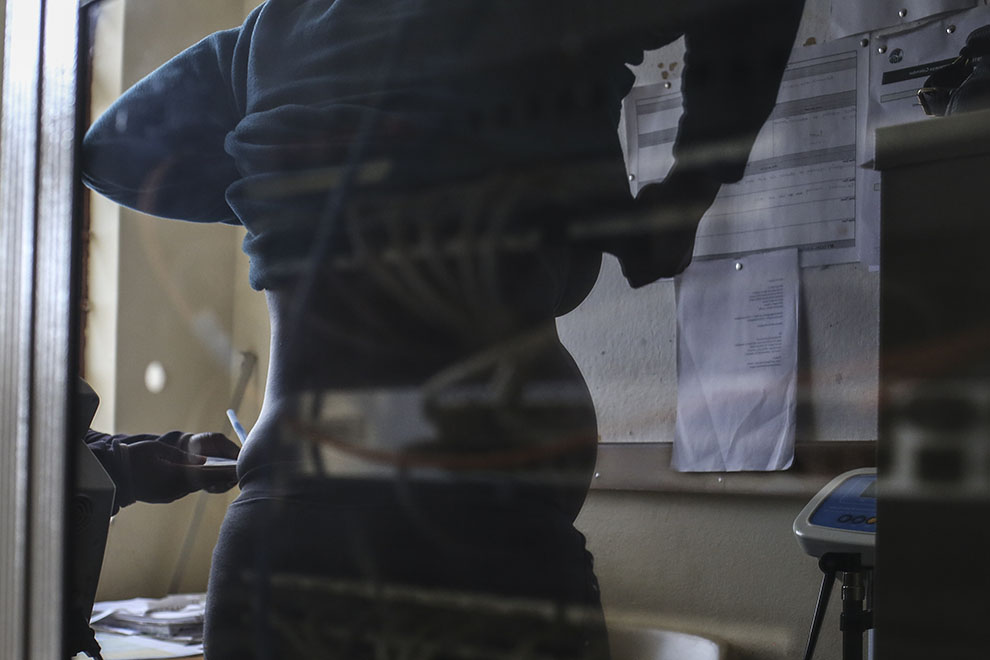
A pregnant woman gets a checkup in a small room that’s also used to house computers outside of Johannesburg, in Dark City, on May 15, 2018.
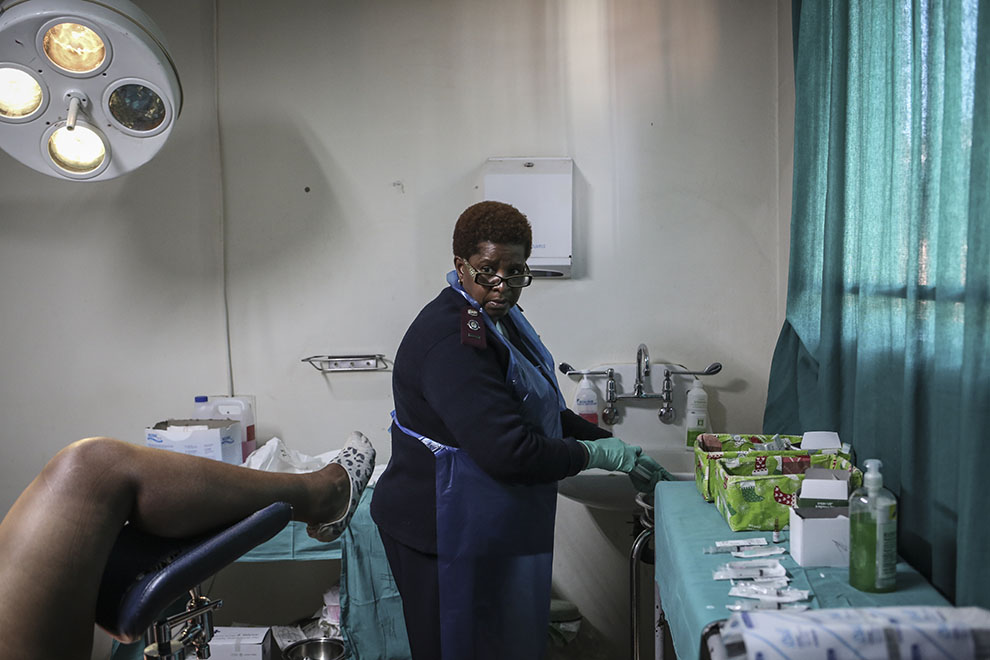
A nurse performs an abortion at Kalafong Hospital in a town near Johannesburg on May 16, 2018. Like at many government-run clinics, women have to wait over a month for an appointment at Kalafong Hospital.
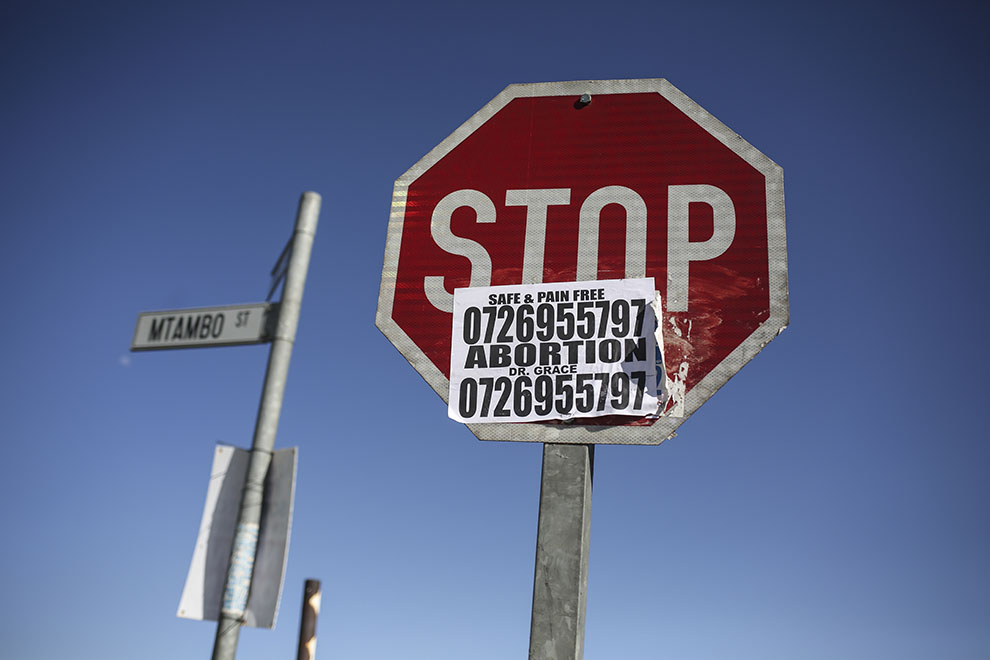
Illegal and unsafe clinics are rampant, and women can find websites or ads for abortion services almost anywhere. Here, a stop sign has an abortion ad plastered to it in Soweto on May 5, 2018.
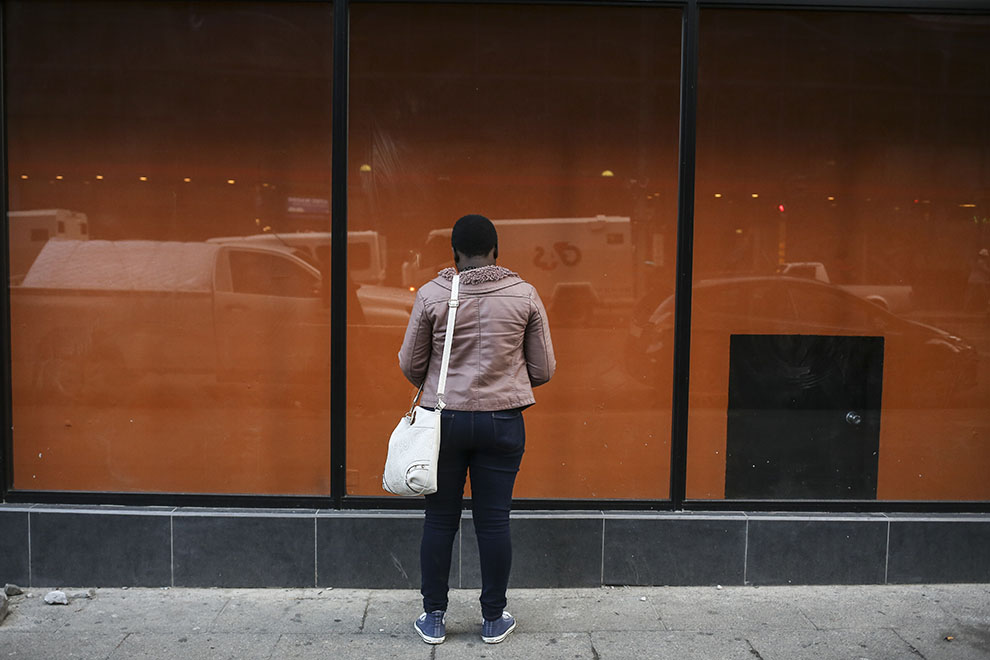
M, whom we first met in Gandhi Square, poses for a photo in Johannesburg on May 16, 2018.
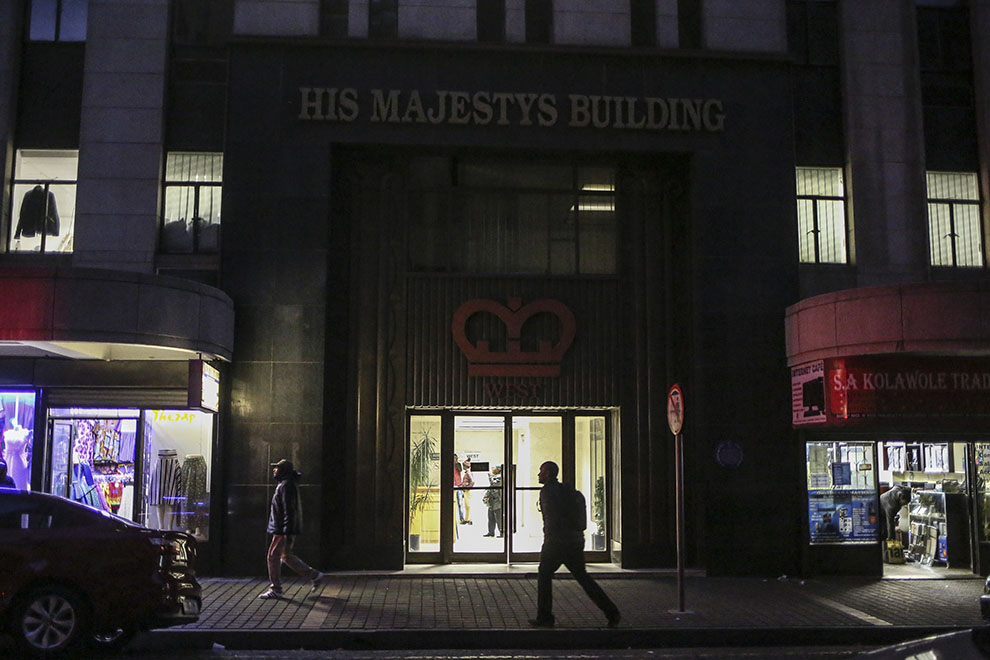
The front of His Majestys Building in Johannesburg, near Gandhi Square, is a well-known place for women to meet illegal abortion providers. Women will find a clinic online, which has only a phone number, and then they will be told to meet someone in the square. At least three different numbers led us to people who had their “clinics” in this building. The clinics were no more than an office with some chairs where a man would give you pills in exchange for R800-1000, or $60-75. These clinics typically have no means to find out how far along a woman is in a pregnancy, and although they claim to be doctors and nurses, it is impossible to verify their credentials.
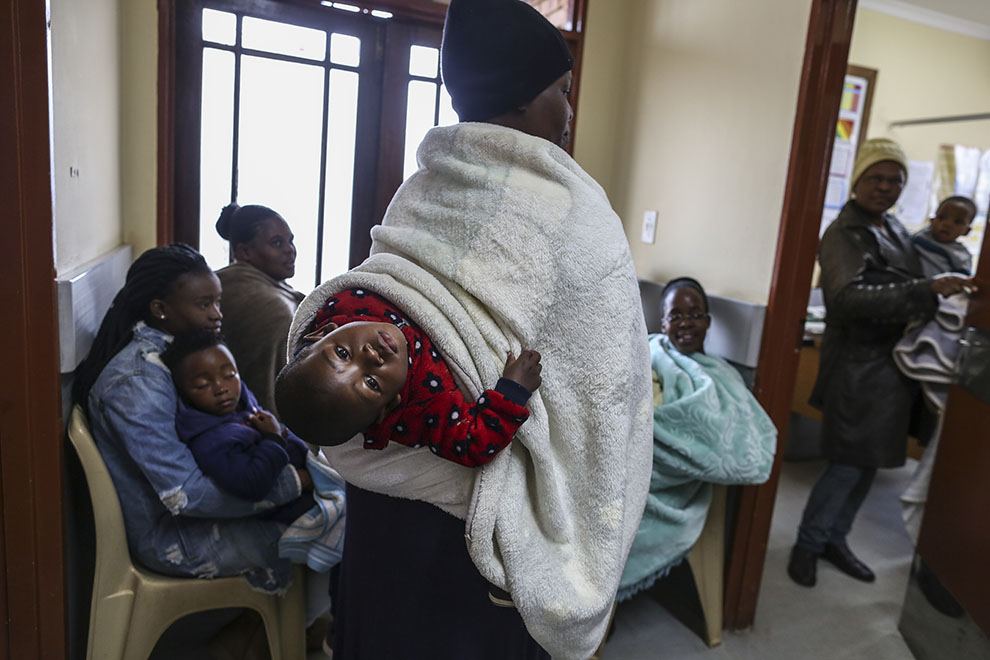
Women wait to have checkups for their babies at a government clinic in Dark City, outside of Johannesburg, on May 15, 2018.
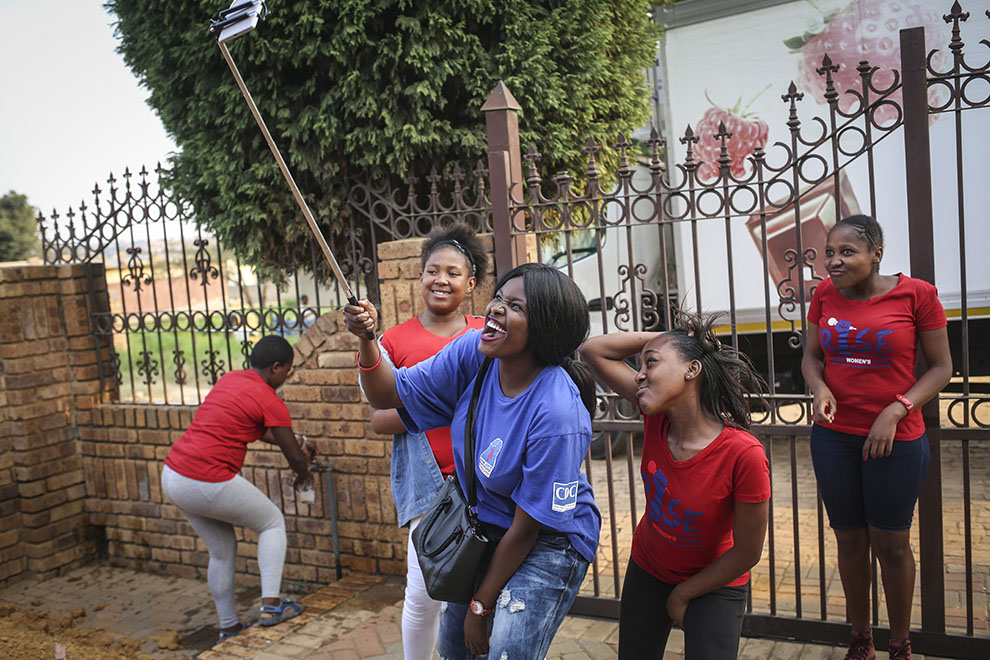
Girls who are part of the Soul City group pose for selfies after their group discussion about abortion in Dark City on April 30, 2018. The conversation was awkward, and all of them acknowledged there was a stigma against abortion. No one mentioned a personal experience with abortion, but none of the girls liked their local government clinic, and didn’t know if they even offered the procedure. They didn’t want to go there for contraception supplies either because they felt judged by the nurses who would say things like, “Aren’t you too young to be sexually active?”
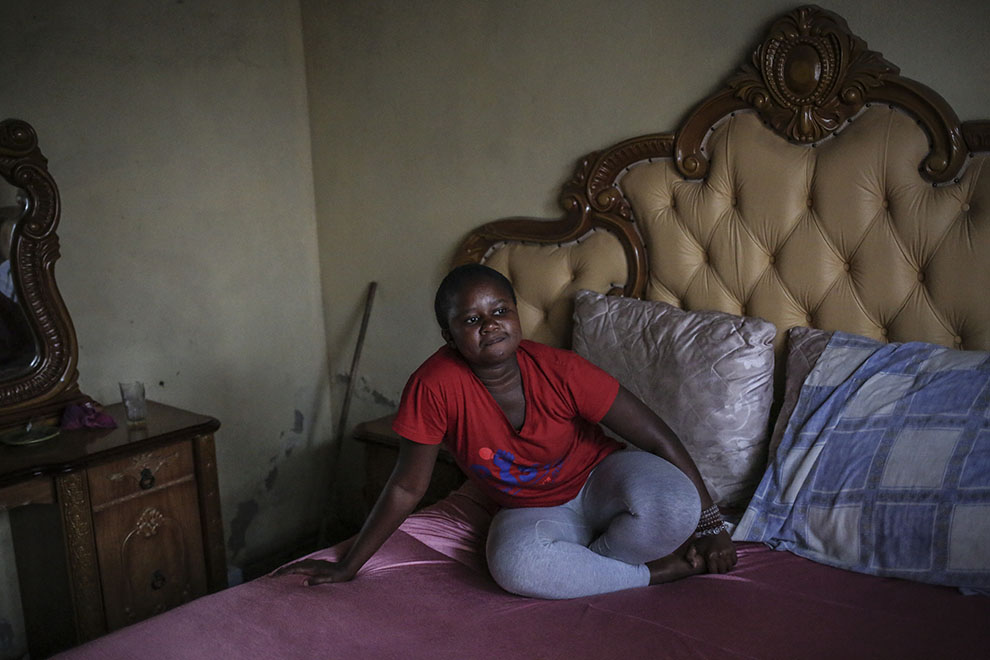
Karabo Motau, age 21, sits in her bedroom in Dark City on April 30, 2018. Karabo had a miscarriage, but many people think she had an abortion and she has been stigmatized as a result. She participated in the Soul City meeting we saw. She says that being a part of Soul City has been very helpful for her because she has a support system and she doesn’t care now what other people think.
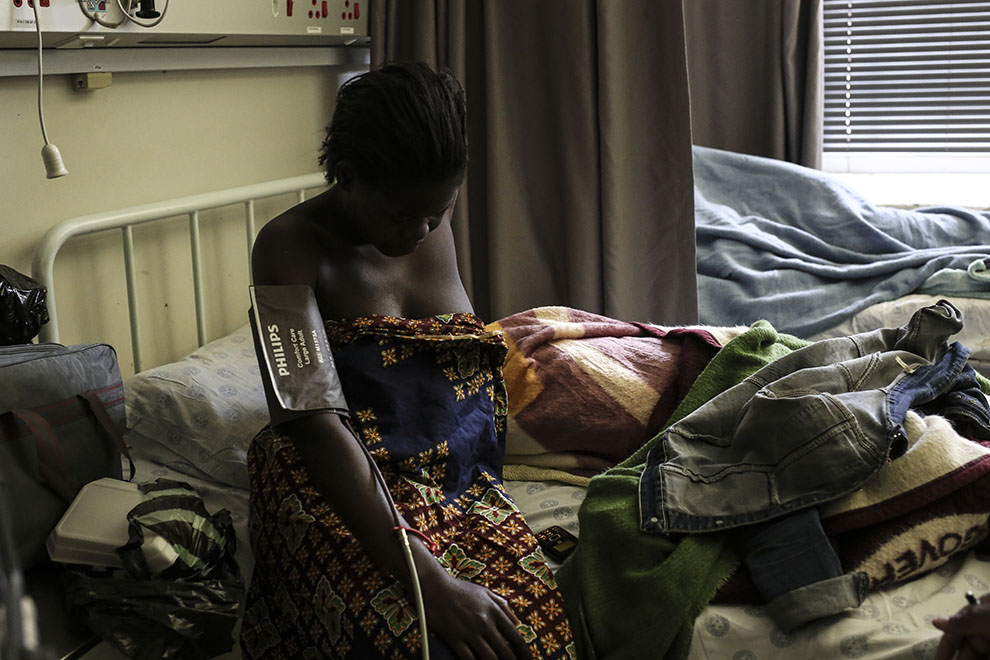
A woman who has just given birth gets her blood pressure taken in the Hillbrow clinic on May 3, 2018.
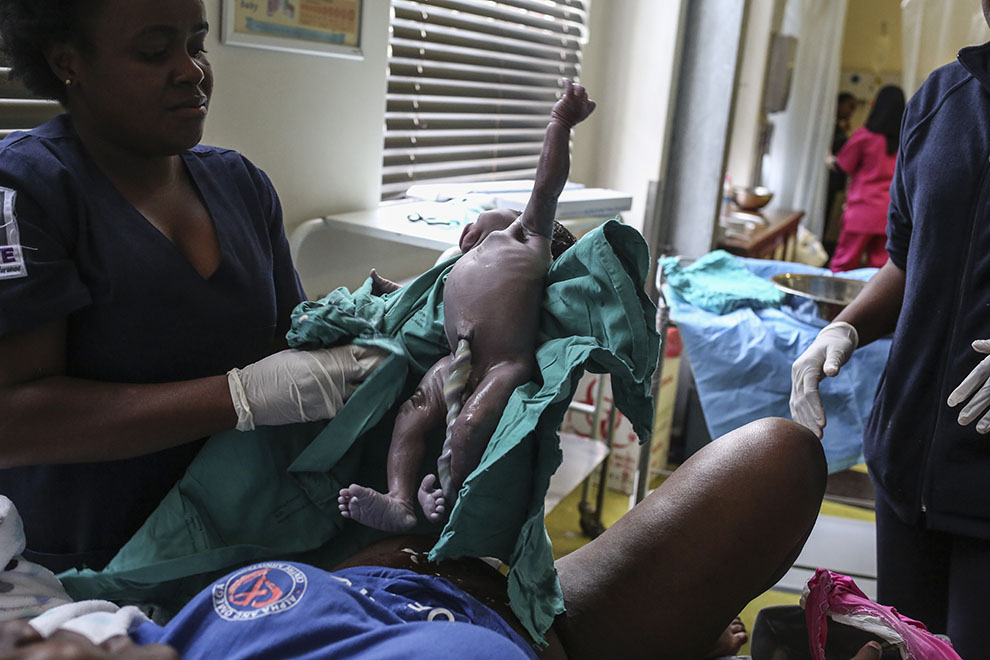
A baby is born at the Hillbrow clinic on May 3, 2018.
Funding for this project came from the International Women’s Media Foundation.
